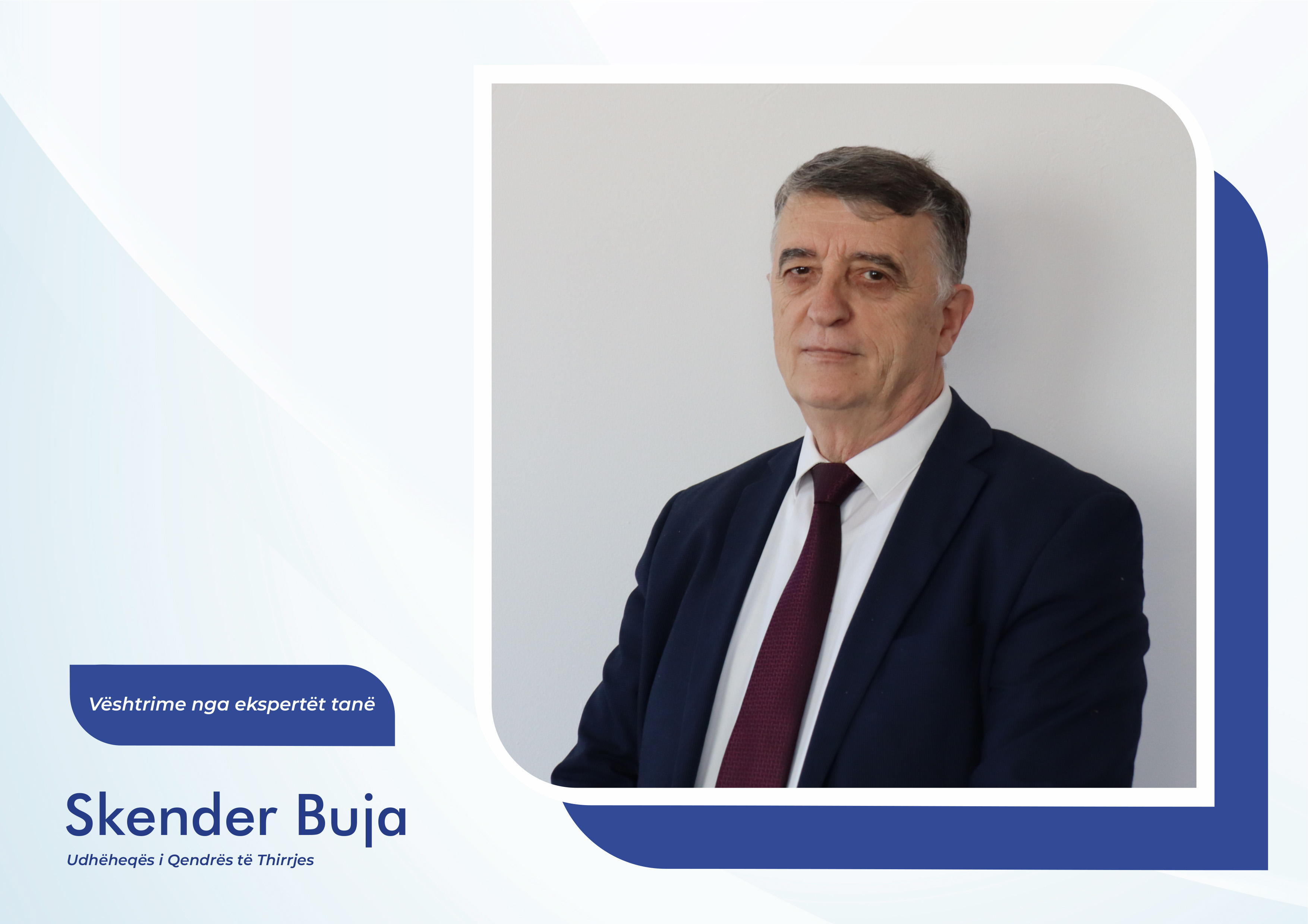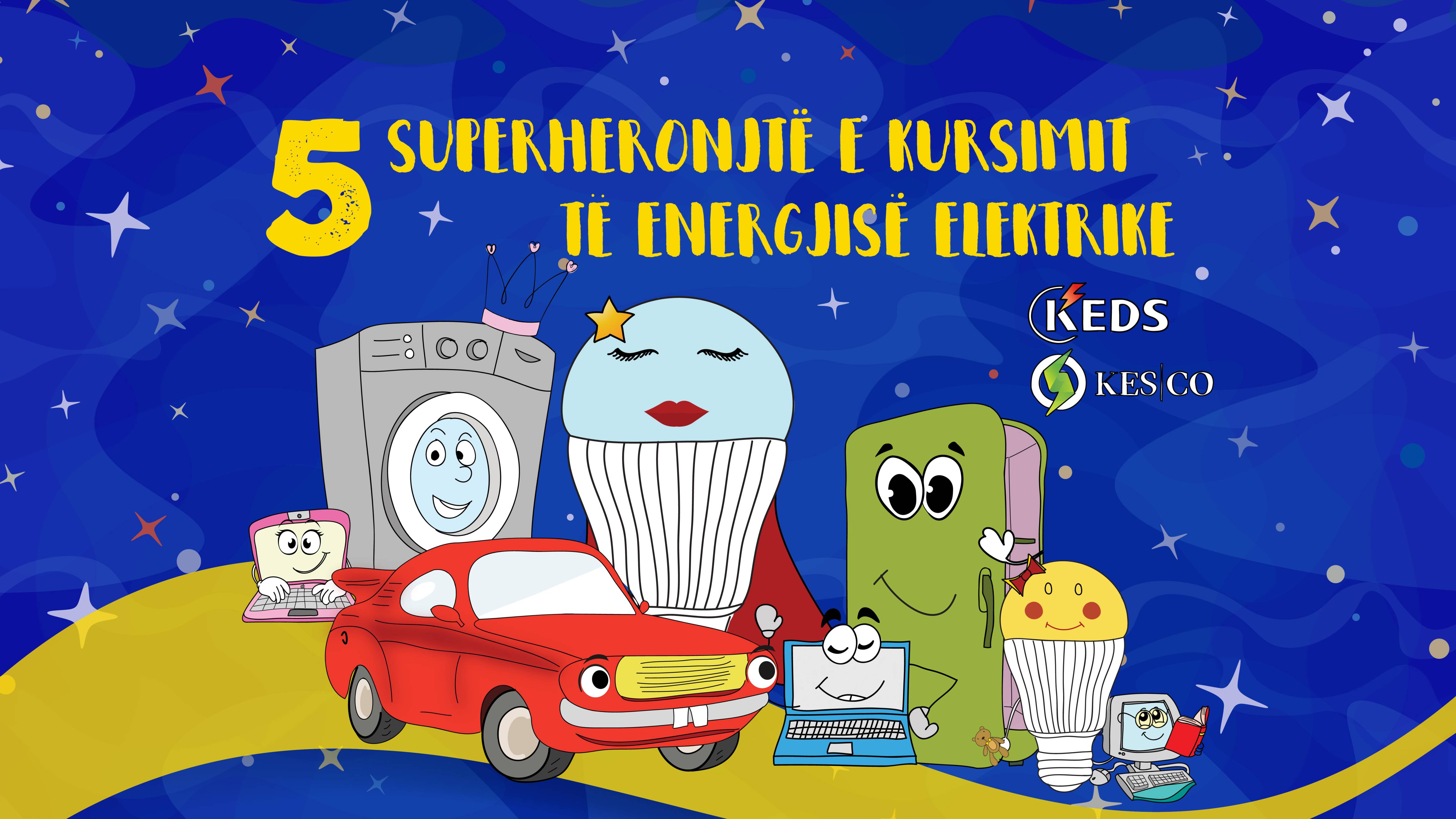 September 08, 2022 | Nga Skender Buja
September 08, 2022 | Nga Skender Buja
What would help the energy crisis in Kosovo?
The approach to the energy crisis must be proactive from all the factors that can impact the mitigation or elimination of the consequences since all of us are consumers of electricity and must contribute for this crisis to have as few negative effects on the economy of our country as possible. The contribution can be given by all actors involved in institutions, businesses, and industry, but also by household consumers in general.
FIRST INSTRUCTION
As a primary instruction for each consumer, individual, or business, it is to maximally reduce unnecessary consumption and rationalize it, and this will only save energy, but it will make it possible that expenses from the personal or business budget are reduced depending on how much energy is saved.
In the long term, this will create additional financial means for the business or the individual budget, so that they can direct these means elsewhere. At first, it may seem a small amount, but in the long run, it adds up a lot.
With a little effort and dedication, each consumer can save 5 to 10% of monthly energy, in the two tariff seasons, annual (summer-winter) and daily (day-night).
Since the total level of electricity consumption in Kosovo during the summer season is around 600-800MWh, if each consumer saves 5 to 10% of his electricity expenses, 30 to 80MWh would be saved, while in the winter season, when the level of consumption goes over 1300MWh, the saving would reach from 60 to 130MWh.
This situation may seem idealistic to be accomplished but the achievement of this level of saving depends a lot on the public commitment of each of us, at the levels within an enterprise and in the wider society.
SECOND INSTRUCTION
The second instruction, in terms of importance, concerns the rational approach, the time the energy consumption is focused. This can be used to the maximum by businesses and individuals.
Orientation and concentration to have maximum consumption after 11:00 pm can be achieved in this way:
- Manufacturing businesses can be guided to put their production capacities into operation after 11:00 p.m. until 8:00 a.m., on the following day. There are many examples of full production lines in the world that work in three shifts, and in this case, the idea is to focus on the third shift. The question is what is the increase in costs for changing the schedule since for the third shift, based on the laws, the payment of the working hours is 130%, or 30% more? This extra expense can be covered by the lower price of the nightly energy tariff, which is around 30% lower for businesses. This way of using the same consumption, but at times when the load is much lower, would contribute to the balancing of the current load in the energy distribution network and to the most effective security supply at the time of "peak" (maximum load). This way also provides security for the performance of manufacturing activities of businesses.
- The same strategy can be applied to individual consumers. Energy consumption after 23:00 (off-peak during summer) should be applied to the consumption of water heating in the bathroom, washing machine, accumulation of energy for heating through storage heaters, etc. This method also acquires energy savings, as well as saves the family budget, since electricity is about 55% cheaper after 11:00 p.m. The saving of budget is done on a high percentage and is quite a solid reason why energy should be saved.
Up to 70% of the public lighting in suburban neighborhoods and villages, could be moved two hours later, depending on what is considered the most convenient time for the respective neighborhood. According to billing statistics, public lighting throughout Kosovo consumes about 10MWh. If we were to shift the 70% lighting time, this would reduce the current load by 7MWh and for two hours 14MWh would be saved.
THIRD INSTRUCTION
The third Instruction has to do with illegal users who also add an immeasurable level of consumption to energy companies. This phenomenon of illegal connections aggravates the local energy crisis even more.
It is important to understand that theft or misuse of electricity can have fatal consequences for illegal user. The worst thing is that this illegal activity is very dangerous for all consumers in general, and especially for those who are connected to the same substation or line with the illegal users of electricity.
This is because any illegal connection is unpredictable in terms of the capacity that will be used and can overload a line or feeder and cause damage to the energy infrastructure.
In order to address the problem of misuse of electricity, intensified cooperation is needed with law enforcement, the special unit, and the judiciary, in order to react as soon as possible to punish any consumer who misuses electricity.
However, finding and reporting of these cases is also done with the cooperation of responsible electricity consumers, who if they notice suspicious cases can report to the e-mail address info@keds-energy.com, contactcenter@kesco-energy.com, on the free number of the Call Center 0800 791 00 or write on the company's social media.
All reports remain anonymous and are treated in complete confidence. Even these above-mentioned measures would affect the identification of illegally consumed kWh and, as a consequence, the reduction of the overall energy consumption.
In conclusion, the aim should be the reduction of the negative effects on the economy of the country and on the quality of life of the citizens.
The success of any idea or initiative to save electricity is achieved with everyone's commitment and willingness to mitigate or even overcome the energy crisis, which is also global, and addressing it remains a general interest.







